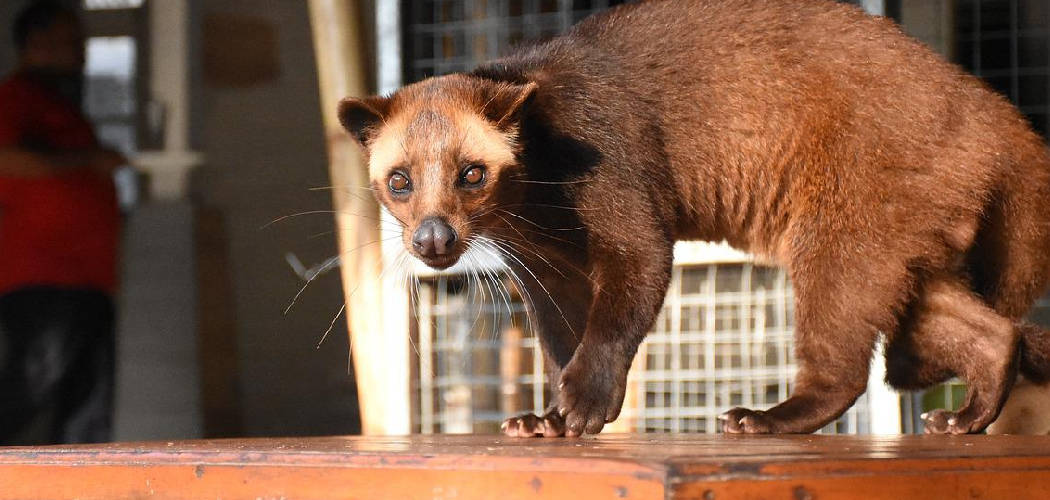Civets are small, secretive carnivores that live in Africa and Asia. They have a long history of being used in traditional medicine, and they are also prized for their musk, a substance produced by the male civet and used in perfumes. As a result, civets are becoming increasingly popular as pets, but they require care and attention.
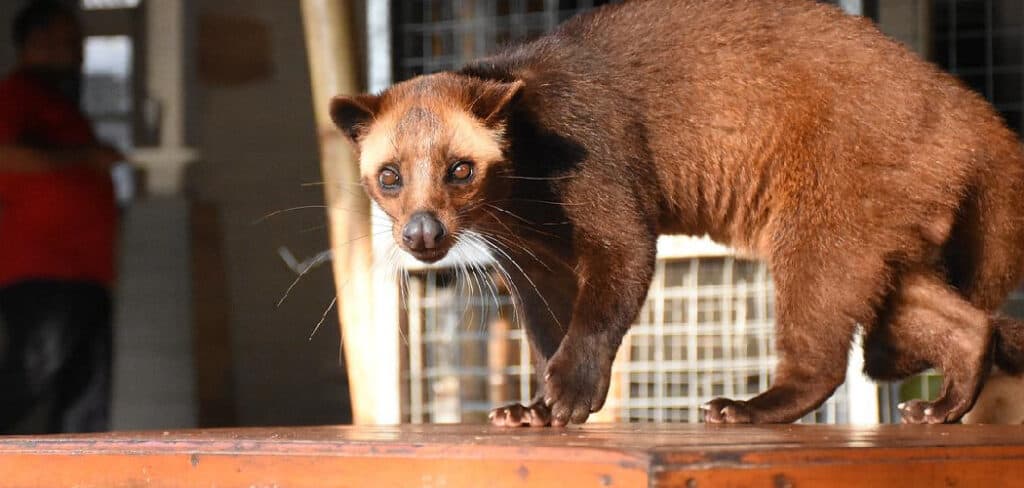
Additionally, many traditions often consider the civet a totem or spirit guide. This blog post will explore the civet meaning, symbolism, and totem. We will also discuss caring for these fascinating creatures if you choose to own one. So, if you’re curious about this fascinating creature, keep reading to learn more about its meaning and symbolism.
Civet Meaning and Symbolism
Civet Native American Symbolism:
The Native American symbolism of the civet is one of protection and defense. The civet was seen as a spirit animal that could teach us how to be alert and aware of our surroundings. The civet was also believed to have the ability to see into the future, and it was often seen as a guide that could help us make decisions about our lives. It is also believed that the civet can help us to connect with our ancestors and the spirit world.
Civet Celtic Symbolism:
In Celtic mythology, the civet is seen as wisdom and knowledge. The civet was believed to be a creature that could teach us about us. It was also seen as a symbol of our connection to nature. The civet is also a totem animal for many cultures. In some cultures, the civet is seen as a guardian spirit. In others, it is seen as a powerful animal that can help us find our way in life.
In Celtic culture, The civet has a long history of druids. Druids were seen as the keepers of knowledge and wisdom, and they were often associated with animals that were considered symbols of these things. The civet was one of these animals. In Celtic mythology, the civet is often seen as a guide or teacher. It is also a symbol of our connection to nature.
Civet Meaning in Christian Symbolism:
The civet is not mentioned specifically in the Bible, but it is included in the list of animals that are considered unclean. This likely has to do with civets being carnivores, and their diet would have been seen as unclean.
However, some Christians see the civet meaning as a symbol of Christ. This is because the civet was believed to have the ability to cure the sick and because it was seen as a holy animal in some cultures. The civet is also a symbol of fertility due to its association with the moon. In some cultures, the civet is seen as a guardian of children.
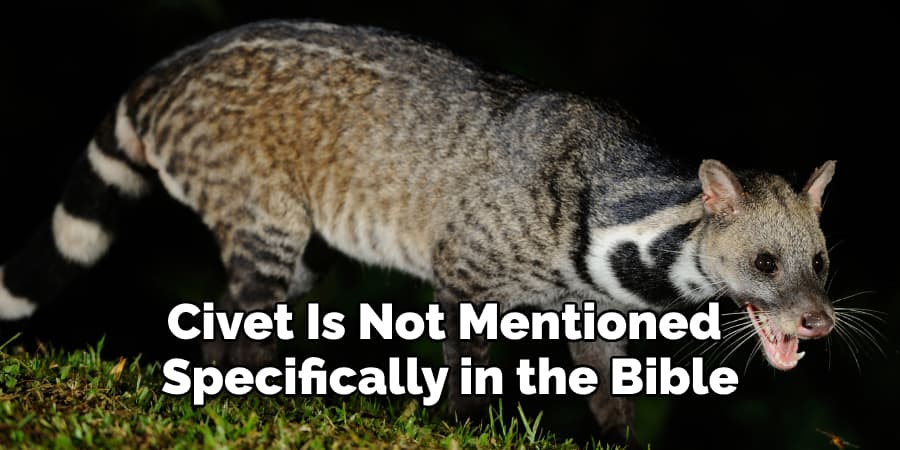
Civet Egyptian Symbolism:
The civet was also revered in Ancient Egypt, where it was seen as a sacred animal. The Egyptians believed that the civet had magical powers and could protect them from evil spirits. As a result, the civet was often depicted in hieroglyphics and art, and it was even mummified and buried in tombs alongside Pharaohs and other important figures.
The civet was also thought to symbolize fertility due to its ability to mate and produce offspring quickly. This made the civet a popular animal to offer to the gods and goddesses of fertility. In some cultures, the civet is still seen as a symbol of fertility and creation.
Civet Far Eastern Symbolism:
In Asia, the civet is seen as a symbol of good luck. It is often kept as a pet, and its musk is used in perfumes and incense. The civet is also thought to have medicinal properties, and it is sometimes used in traditional Chinese medicine. The civet is also a popular subject of Chinese art. In Japan, the civet is known as the ‘hairy cat’ and is considered to be a symbol of good fortune.
The civet is also thought to have healing powers, and its fur is used in traditional Japanese medicine. The civet is also popular in Korea, known as the ‘tiger cat.’ The civet is seen as a symbol of strength and courage, and it is often kept as a pet. The civet is also thought to have healing powers, and its fur is used in traditional Korean medicine.
Civet African Symbolism:
The civet is also revered in Africa, where it is seen as a symbol of strength, power, and fertility. In some cultures, the civet is thought to be a reincarnation of a powerful ancestor. The civet is also thought to have magical powers and is sometimes used in traditional healing ceremonies.
The civet is a member of the Viverridae family, including mongooses, meerkats, and genets. In African regions, the civet is also known as the African civet, Angola civet, or zibet. It is a nocturnal mammal native to sub-Saharan Africa and the Arabian Peninsula. The civet is most active at night, and it spends the day sleeping in trees or dens.
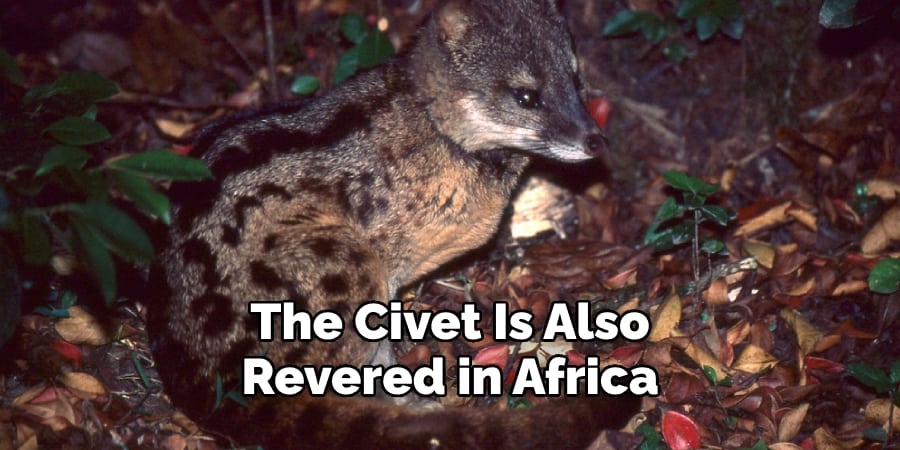
Civet Spiritual Meaning
The civet is a spiritual animal that has several different meanings. In some cultures, the civet is seen as a guide or teacher. It is also a symbol of our connection to nature. The civet meaning is often seen as a symbol of fertility due to its association with the moon. Finally, in some cultures, the civet is also seen as a home protector.
The civet is a nocturnal animal, which means it is most active at night. This can be seen as a symbol of our hidden desires or intentions. The civet is also known for its strong sense of smell. This can be interpreted as our ability to “smell out” danger or deception. Finally, the civet is a solitary creature, which means it is not often seen in groups. This can be seen as a symbol of our independence and self-reliance.
In many cultures, the civet is seen as a positive and beneficial animal. However, the civet is seen as a negative symbol in some cultures. The civet is often associated with darkness, death, and evil. This is likely because the civet is a nocturnal animal.
Civet Spirit Animal
The civet is a powerful spirit animal that can teach us about strength, power, and fertility. The civet is also a symbol of our connection to nature. If the civet is your spirit animal, you may have a strong smell. You may also be independent and self-reliant. The civet can also help us to understand the cycles of life and death.
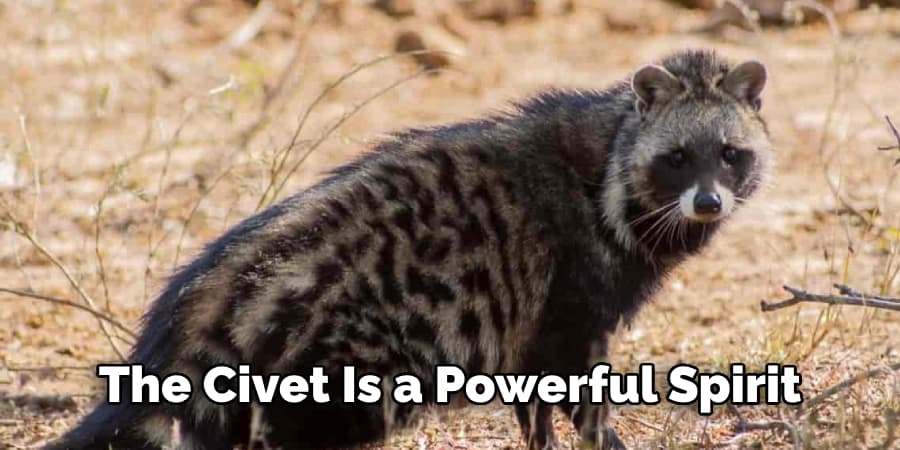
The civet is a nocturnal animal, which means active at night. The civet is also a solitary creature, which means it prefers to live alone. The civet is a shy animal, but it can be aggressive if threatened. The civet is a timid creature, but it is also very curious. The civet is an intelligent animal, and it is known for its problem-solving abilities.
If you have the civet as your spirit animal, you may be a night person. You may also be independent and self-reliant. You may also be shy and timid, but you are also very curious. Finally, you may be an intelligent person who is good at solving problems.
Civet Totem Animal
Those who have the civet as their totem animal are natural-born leaders. They are confident and always ready to take on new challenges. Civet people are also very loyal, protective, and loving. The Civet totem can help you overcome your fears and take on new challenges.
If you have the civet as your totem animal, you may be a natural-born leader who is confident and always ready to take on new challenges. You may also be very loyal, protective, and loving. The Civet totem also symbolizes new beginnings and fresh starts. If the civet totem is prominent in your life, it may take on a new challenge.
Civet Power Animal
The civet is a powerful animal that can help us overcome our fears and take on new challenges. The civet is also a symbol of our connection to nature. If the civet is your power animal, you are likely to have a strong connection to the natural world. The civet is also a symbol of wisdom and knowledge.
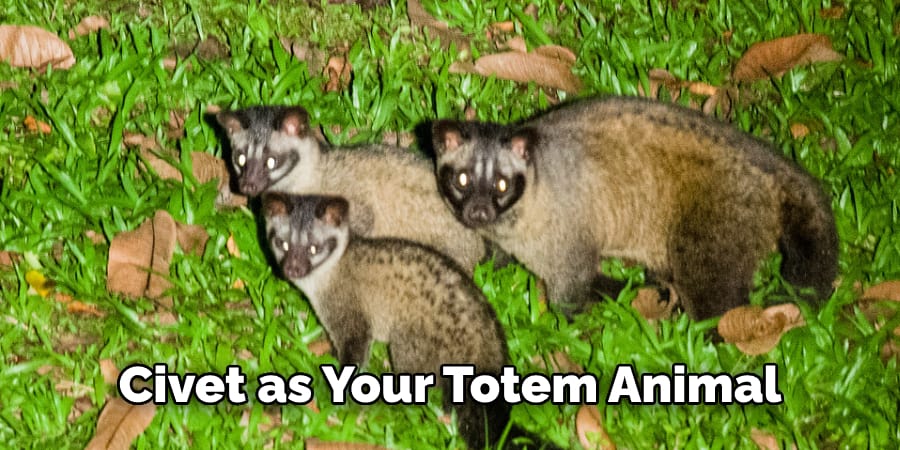
The civet is said to teach us about the cycle of life and death. If the civet is your power animal, then you may be someone who is wise and knows a lot about the cycle of life. The civet is also a symbol of fertility due to its association with the moon. If the civet is your power animal, you may be fertile and creative. Finally, the civet is also a symbol of protection due to its association with the sun.
Final Words
The civet is a small, shy creature found in the rainforest and other wooded areas. It has a long body with short legs and a bushy tail. The civet is mainly black or dark brown with white markings on its chest, throat, and chin. Its fur is very thick and oily, which helps it to keep dry in the rainforest. Civets are omnivores and eat both plants and animals.
They are preyed upon by big cats, snakes, and raptors. The civet has many symbolic meanings around the world. If you come across a civet in the wild, please remember to give it plenty of space and know the civet meaning. Let’s work together to keep these animals safe and thriving! Have you seen a civet before? What was your experience like? Let us know in the comments below!
You Can Check it Out Bear Spiritual Meaning, Symbolism, and Totem

